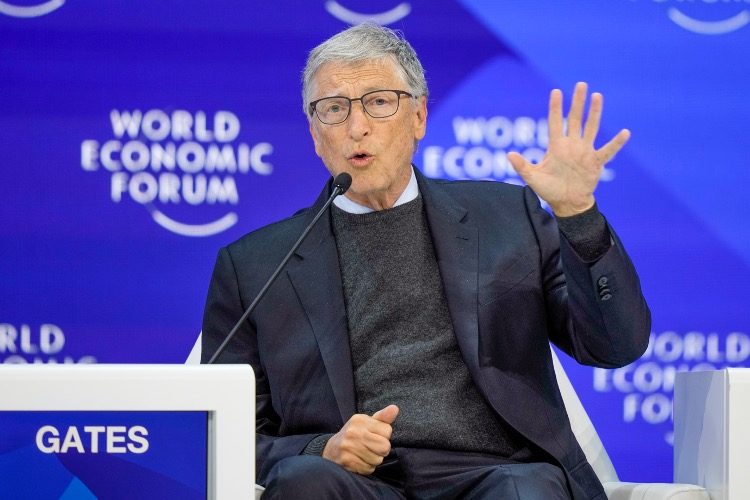
Bill Gates reiterated his interest in the development of a new generation of needle-free vaccines.
In his Tuesday interview with CNBC-TV18 at the annual World Economic Forum (WEF) meeting in Davos, Gates said that the Covid pandemic underlined the need to invest more in vaccines that would offer longer duration, broader coverage, and easier administration.
Gates said,
We make sure that for all these vaccines, there’s enough capacity [and] there’s competition, so the prices keep going down. And we will have new vaccines.
We’ll have a TB [tuberculosis] vaccine, a malaria vaccine, an HIV vaccine, and even things like Covid vaccines. We need to make them have a longer duration, more coverage. And we’re going to change instead of using a needle to use a little patch. So, the pandemic really highlighted that we’ve been underinvested in those innovations, and our partners in India are part of how we’re going to get these breakthrough products done.
Last November, the Bill & Melinda Gates Foundation granted $23.6 million to U.S.-based Micron Biomedical for the first-ever mass production of the needle-free measles-rubella vaccine to expand its accessibility in developing countries. The vaccine is intended for use in children as young as nine months.
Micron advertises the new vaccine technology as a “’peel & stick’ microarray technology [that] is applied to the skin and allows for self-administration of pharmaceuticals by pressing a button.”
According to the company, the new technology offers an array of advantages, such as painless administration, easier transportation, storage, and utilization compared to traditional injectables, and the elimination of the need to visit a trained healthcare worker.
Vaccine microarray patches, or vMAPs, are a technology that has been receiving lots of attention from both the U.S. government and the foremost international healthcare organizations due to their potential for “rapid deployment” that could “reach everyone everywhere.”
According to the Expert Opinion on Drug Delivery journal published in January 2023,
Representatives of the Biomedical Advanced Research and Development Authority (BARDA); Bill & Melinda Gates Foundation; Coalition for Epidemic Preparedness Innovations (CEPI); Gavi, the Vaccine Alliance; PATH; United Nations Children’s Fund (UNICEF); and the World Health Organization are pointing to the critical need to invest in pilot manufacturing facilities for vMAPs to accelerate their development and increase access to them, given their potential to rapidly deploy vaccines during an epidemic or a pandemic, and to increase the reach of vaccines within the Expanded Programme of Immunization in low- and lower-middle-income countries (LMICs) to reach everyone everywhere, with a use case across high-income (HICs), middle-income (MICs), and LMICs.
The parties involved believe that if the investment is made promptly, they can set up one or two trial facilities in the next two to three years. After that, they can start the first studies for approval within three years, or by 2029-2030.
Rapid deployment of vaccines and therapeutics was considered one of the core factors of a successful pandemic response by the panelists of the Wednesday WEF discussion on the preparations for Disease X.





